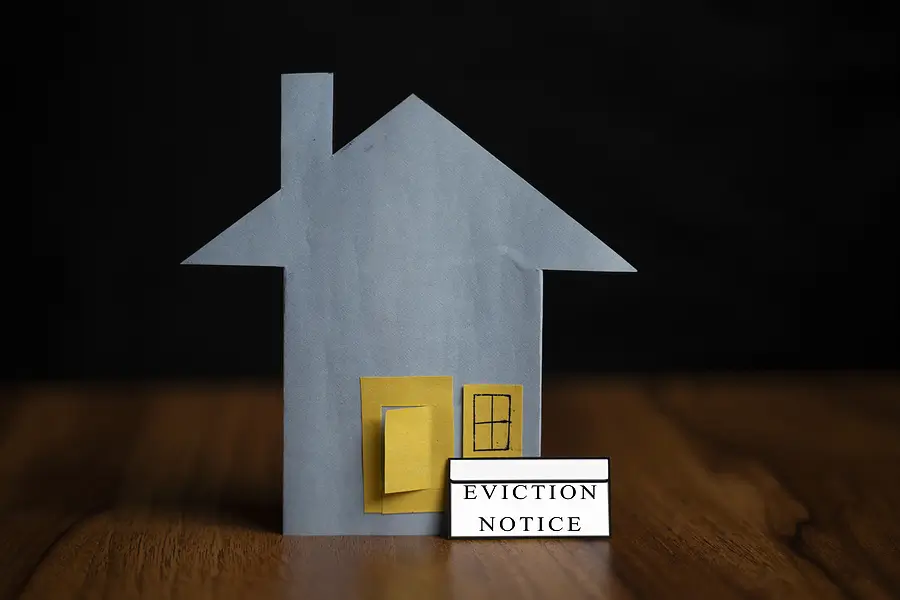Managing a rental property in Charleston, SC, requires a thorough understanding of landlord-tenant laws, lease agreements, and the eviction process. Evictions can be challenging, but knowing your legal rights and responsibilities can help you navigate these situations effectively.
At Oak Trust Properties, we are here to guide you through what Charleston landlords need to know about eviction services, South Carolina laws, and the steps involved in resolving disputes.
Understanding South Carolina Landlord-Tenant Laws
South Carolina law governs the relationship between landlords and tenants, outlining specific rights and obligations for both parties. As experts in Charleston property management, we understand the importance of the South Carolina Residential Landlord and Tenant Act in protecting your property and ensuring compliance with state regulations.
Key Points of South Carolina Law:
Written Rental Agreement: A written lease agreement is essential. It must clearly state the terms, including rent due dates, lease terms, and rules governing the rental property.
Tenant Obligations: Tenants are required to pay rent on time, maintain the dwelling unit, and adhere to the lease terms.
Landlord Obligations: Landlords must provide safe and habitable rental units, comply with building and housing codes, and avoid unlawful actions like removing tenants without following legal procedures.
The Eviction Process in Charleston, SC
The eviction process in Charleston is regulated by South Carolina eviction laws. This process involves several steps, each designed to ensure fairness for both the landlord and tenant. Let’s take a closer look:
Step 1: Issue Proper Notice
If a tenant fails to pay rent or violates the lease agreement, you must provide written notice before filing an eviction lawsuit. South Carolina law typically requires a five-day notice for unpaid rent. For other lease violations, the notice period may vary.
Step 2: File an Eviction Lawsuit
If the tenant refuses to comply after receiving proper notice, we can help you file a case in the magistrate court. This involves submitting a complaint and paying the necessary fees. In some cases, disputes may escalate to the circuit court, particularly when higher damages or jury trials are requested.
Step 3: Attend the Eviction Hearing
Both the landlord and tenant will present their cases during the eviction hearing. If the magistrate court judge rules in your favor, a writ of ejectment will be issued. For more complex cases, a circuit court judge may oversee the proceedings.
Step 4: Enforce the Eviction
The eviction process in South Carolina allows only the sheriff or a deputy sheriff to enforce a writ of ejectment. You cannot remove tenants or their personal property without legal authorization. Attempting to do so could lead to penalties, including liability for twice the actual damages incurred by the tenant.
Common Reasons for Evictions
Evictions are often a result of tenants failing to meet their obligations under the rental agreement. The most common reasons include:
Unpaid Rent: Failure to pay rent by the due date is a leading cause of eviction proceedings.
Lease Violations: Actions such as unauthorized pets, illegal activities, or excessive property damage may result in eviction.
End of Lease Term: Tenants who refuse to vacate the rental unit after the lease term ends can be evicted.
Breach of Building Codes: Failure to comply with building and housing codes that affect the safety of the rental premises.
Evictions also involve complexities, such as addressing cases involving elderly tenants or individuals with prepaid rent. Ensuring that your actions align with South Carolina eviction process laws is critical to avoid potential liabilities.
Legal Protections for Tenants
South Carolina state law provides specific protections for tenants to ensure fairness. For example:
Security Deposit Returns: If you fail to return the tenant’s security deposit or provide an itemized list of deductions, the tenant can recover actual damages, potentially twice the amount withheld.
Improper Evictions: Landlords who unlawfully remove tenants may be liable for damages. This includes removing elderly tenants or those who have prepaid rent without following the proper eviction process.
Avoiding Landlord-Tenant Disputes
To minimize disputes and reduce the likelihood of eviction, we recommend:
Maintaining Clear Communication: Keep open lines of communication with tenants to resolve issues early.
Using Detailed Lease Agreements: Ensure your rental agreement outlines all expectations, including maintenance responsibilities and rules for the property.
Regularly Scheduled Periodic Services: Conduct routine inspections and maintenance to prevent issues from escalating.
Following Proper Procedures: Always adhere to South Carolina eviction laws and avoid taking matters into your own hands.
Open communication and proactive management not only minimize conflicts but also create a positive landlord-tenant relationship. Regularly addressing property concerns and maintaining compliance with state laws further ensures smooth operations and tenant satisfaction.
Why Work With Oak Trust Properties for Eviction Services
Handling evictions can be overwhelming for property owners. That’s why many landlords in Charleston turn to Oak Trust Properties. We are well-versed in South Carolina landlord-tenant laws and can manage the entire eviction process on your behalf, from serving eviction notices to representing you in court.
Benefits of Our Eviction Services:
Expertise in South Carolina rules and civil procedure
Assistance with drafting lease agreements
Ensuring compliance with South Carolina eviction laws
Reducing the risk of costly mistakes
Recovering unpaid rent and actual damages efficiently
Navigating court hearings, including cases that escalate to magistrate’s or circuit court
Our team also ensures that all necessary or agreed services are met to maintain compliance with your obligations as a property owner.
Take the Stress Out of the Eviction Process
Evictions are a legal process that requires careful adherence to South Carolina eviction laws. By working with Oak Trust Properties, you can protect your investment while maintaining compliance with state regulations. If you need assistance with evictions or other property management services, contact us today.


